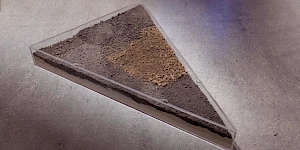Editors’ Picks: Yolande Zola Zoli van der Heide
As part of a series, members of L’Internationale Online editorial board revisit the archive of the platform, selecting contributions that resonate for them, their practice and the Museum of the Commons project. Here, Yolande Zola Zoli van der Heide looks to contributuions by Subversive Film, bell hooks and Nomusa Makhubu, thinking through the notion and practice of fermentation, as proposed by artist Camille Sapara Barton in relation to social movements in times of global polycrisis.
I’m currently sitting with artist and somatic practitioner Camille Sapara Barton’s offering that social movements need to approach lasting change through the lens of fermentation.1 It is a proposal to balance the ‘veracious fire’ response to the multiple genocides and uncertainties we are witnessing and organising around. This slow accumulative process is one that can shift culture in building skills such as changing shape along with the change enacted. New realities might then not resemble those of old oppressive modes. Social movements, Barton points out, need to operate in multiple modes to enact this kind of intergenerational and systemic change.
The idea of fermentation brings me to the idea of the Kitchen, and how it shapes conversation so I revisited a discussion that took place in The Kitchen of Subversive Film, who have given this name to their collective working space in Brussels. In conversation, artists Reem Shilleh and Mohanad Yaqubi share how the roots of Palestinian militant cinema can be traced back to 1968 in a kitchen apartment in Amman, Jordan, where a Palestinian revolutionary body had been organising.
To mitigate the kind of balance that Barton advises, veracious fire must also be supplemented with grief practices, rest and healing. A reprint of bell hooks’s ‘Touching the Earth’ can be found in the 2022 book Climate: Our Right to Breathe. In it, hooks underscores how collective black self-recovery is only feasible with the renewal of our relationship to the Earth and recalls how generations of Black enslaved Americans migrated north to escape life in the South only to return home ‘in search of spiritual nourishment, a healing that was fundamentally connected to reaffirming one’s connection to nature, to a contemplative life where one could take time, sit on the porch, walk, fish, and catch lightning bugs. …[so] when we talk about healing that psyche we must also speak about restoring our connection to the natural world’.2
Running with Barton’s metaphor, fermentation practice is situated in that one’s culture can literally be preserved in a culture or fermentation starter. In ‘The Poetics of Entanglement: Zina Saro-Wiwa’s Food Interventions’, art historian and artist Nomusa Makhubu speaks to the connections between food and power, as well as land and labour relations. ‘The global traffic of food sustains static conceptions of, for example, “Chinese,” “Mexican,” “Indian,” or “African” food. These cuisines can be produced and consumed almost anywhere, but, in this traffic, there are vestiges of relations forged by imperialism. So, while food seems to solidify class and culture differences, it also fosters collective ways of being and embodies human commonalities in entangled histories; it has the potential to tap into the persistent emotive histories of the colonized body in contemporary social life.’3
In urgent responses and moments of learned slowness, part of the task then is to be attuned with the collective and individual heart, mind, body and gut.
Nick Aikens and Subversive Film, ‘The Kitchen, an Introduction to Subversive Film with Nick Aikens, Reem Shilleh and Mohanad Yaqubi’, 2023
bell hooks, ‘Touching the Earth’, Climate: Our Right to Breathe, 2022
Nomusa Makhubu, ‘The Poetics of Entanglement: Zina Saro-Wiwa’s Food Interventions’, Climate: Our Right to Breathe, 2022
Yolande Zola Zoli van der Heide is senior exhibitions curator at Van Abbemuseum in Eindhoven, the Netherlands, and member of the editorial board for L'Internationale Online.
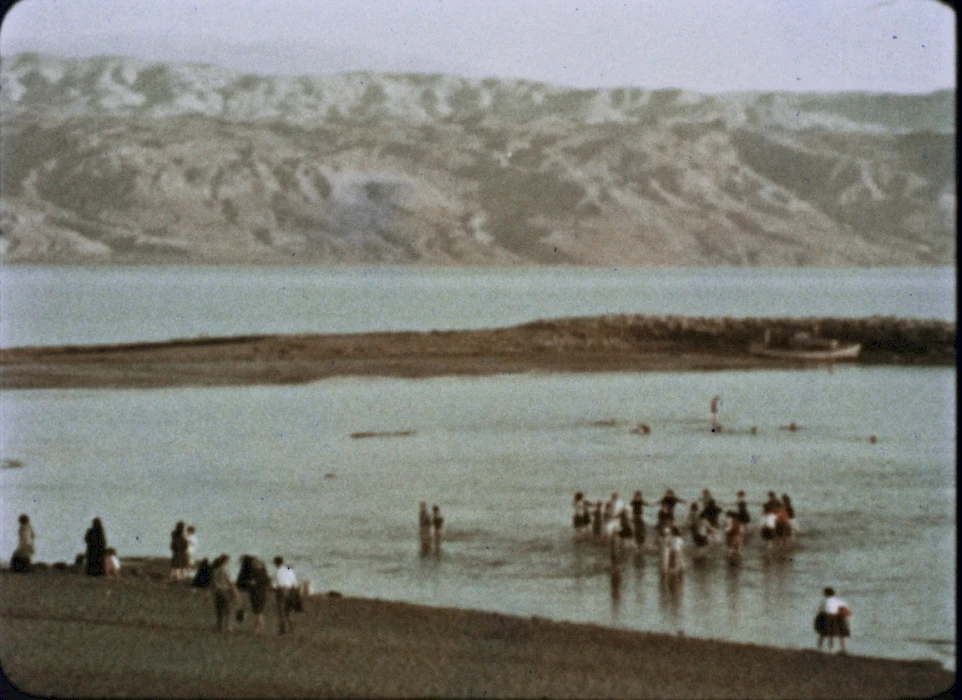
Still from Welcome to Jordan (1964, dir. Tom Hollyman). Image capture by Subversive Film.
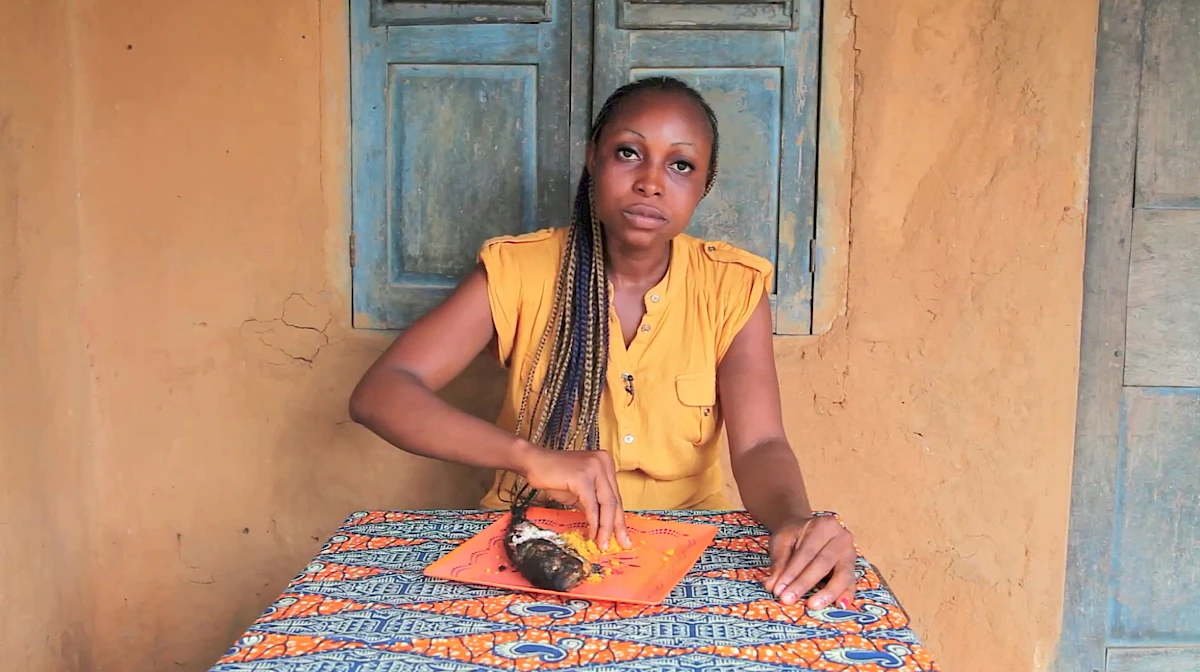
Zina Saro-Wiwa, Table Manners: Barisuka Eats Roasted Ice Fish and Mu, video still, 2014. © Zina Saro-Wiwa. Image courtesy of the artist.
Related activities
Related contributions and publications
-
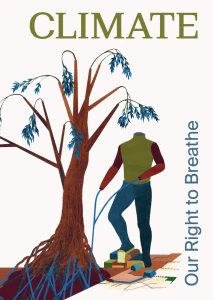
Climate: Our Right to Breathe
ClimateThe Climate Forum -
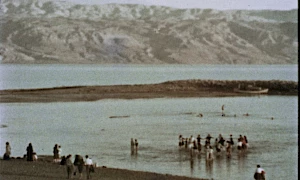
The Kitchen, an Introduction to Subversive Film with Nick Aikens, Reem Shilleh and Mohanad Yaqubi
Nick Aikens, Subversive FilmlumbungPast in the PresentVan Abbemuseum -
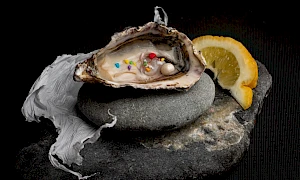
Discomfort at Dinner: The role of food work in challenging empire
Mary FawzyRecette. Reset. Recipes in and Beyond the InstitutionSituated Organizations -
Editors’ Picks: Nick Aikens
Nick AikensEditors' Picks -
Editors’ Picks: Ezgi Yurteri
Ezgi YurteriEditors' Picks -
Editors’ Picks: Eric Otieno Sumba
Eric Otieno SumbaEditors' Picks -
Editors’ Picks: Cathryn Klasto
Cathryn KlastoEditors' Picks -
Editors’ Picks: Jasna Jakšić
Jasna JakšićEditors' Picks -
Editors’ Picks: Yolande Zola Zoli van der Heide
Yolande Zola Zoli van der HeideEditors' Picks -
Editors’ Picks: Fran MM Cabeza de Vaca
Fran MM Cabeza de VacaEditors' Picks -
Editors’ Picks: Declan Long
Declan LongEditors' Picks
